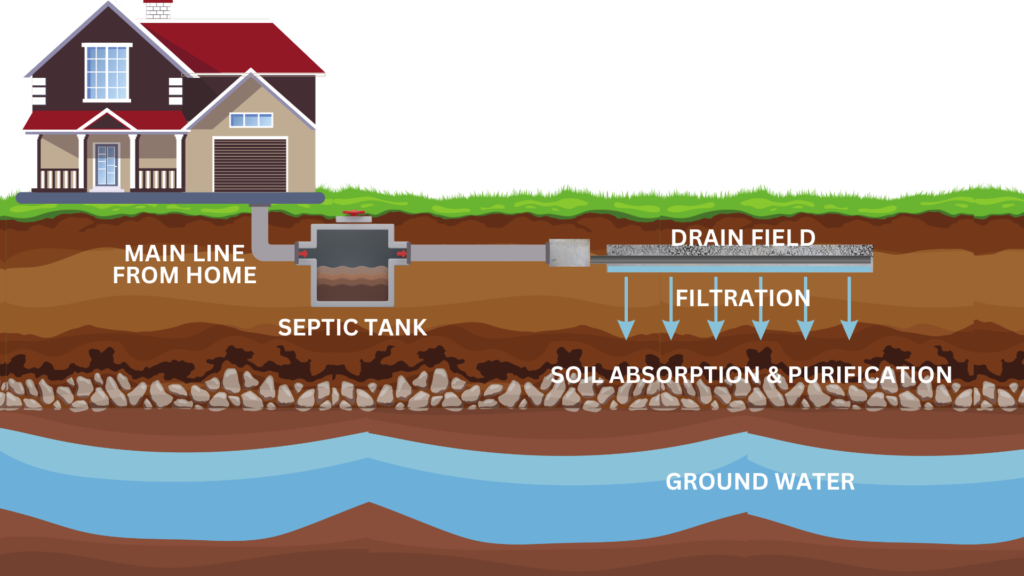Maintaining your
Septic System

septic system maintenance
Septic System Maintenance doesn’t need to be complicated or expensive. In fact, being consistent with your system’s upkeep will typically save you money in the long run. You simply need to remember four key points.
- Pump Frequently
- Use Water Efficiently
- Properly Dispose of Waste
- Maintain Your Drain field
maintenance is a Must
Replacing a septic system can cost anywhere from $5,000 to $25,000. To avoid paying such an often preventable and sizable bill, proper septic system maintenance is essential. Routine septic system maintenance will not only save you from expensive repairs, but it will also help make your living environment a healthy and safe space. Fortunately, septic system maintenance isn’t rocket science. From your toilet and shower to your garbage disposal and washer, whatever goes down your drain ends up in your septic tank. Therefore, it’s important to pay close attention to what items you flush or dump, as well as the efficiency of your appliances.
Septic System Do's & Don'ts
Do's
- Pump Your System Frequently
- Maintain Your Drain Field
- Properly Dispose of Waste
- Use Water Efficiently
✓ Pump Your System Frequently
It is best to have household septic systems are pumped every two to three years. When we come out to pump your tank let us know how many years it’s been since so we can tell you how often your septic system needs to be pumped in the future. Frequent pumping often prevents premature failure.
✓ Maintain Your Drain Field
To maintain your drain field, avoid planting gardens, bushes, and trees nearby. When roots grow deep, they can bump against your septic system. You should also avoid parking cars over your drain field.
✓ Properly Dispose of Waste
Be careful with what you put down the garbage disposal. To avoid clogging your system up, try not to put cooking grease, coffee grounds, and chemicals down the disposal.
✓ Use Water Efficiently
The more water you waste with, the more water will enter your septic system, which can lead to potential drain field flooding. The easiest way to prevent wasting water is by using high-efficiency appliances. Look for Energy Star washing machines, toilets, and other appliances, which use 50 percent less water than other outdated appliances.
Dont's
- Flush Items Down Your Toilet
- Pour Chemicals Down Your Drain
- Waste Water
- Install Rainwater Drainage Nearby
✗ Flush Items Down Your Toilet
Avoid flushing anything down the toilet that isn’t toilet paper, including items described as “flushable”, such as wipes.
✗ Pour Chemicals Down Your Drain
Whether you’re at the kitchen sink or the bathroom shower, avoid pouring chemicals, oil, grease, and toxic liquids down the drain. Chemical drain and pipe cleaners can also be damaging to septic systems. The liquid hydrochloric acid that’s found in many of these drain cleaners is strong enough to eat away at pipes and even metal parts.
✗ Waste Water
Wasting water is the easiest ways to diminish the efficiency of a septic system. Some of the simplest ways to avoid wasting water are to invest in Energy Star appliances, fix leaking faucets, and repair running toilets.
✗ Install Rainwater Drain Systems Nearby
Do not keep heavy equipment, gardens/trees, or excess rainwater on your drain field area. Excess rainwater from a drainage system, can cause water to accumulate near your drain field which will slow down your septic system’s treatment process.

